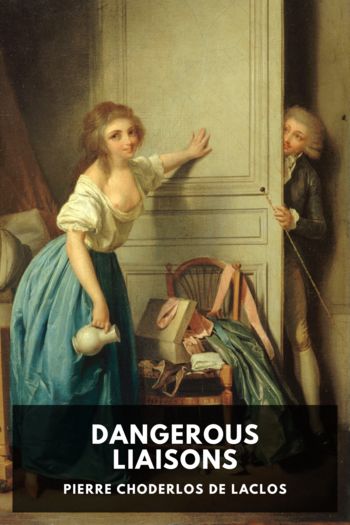The Other Side of the Door, Nicci French [new reading .TXT] 📗

- Author: Nicci French
Book online «The Other Side of the Door, Nicci French [new reading .TXT] 📗». Author Nicci French
Miss Hurst was Sonia, who had become my best friend at the school and then perhaps my best friend out of the school as well. We hadn’t known each other long, but we had got on from the moment we first met in the staff toilets on the first day of term. She wasn’t naturally sociable or extrovert—some of the other teachers felt she held herself aloof—and her wholehearted friendship was like a gift she had conferred on me. She had long dark hair and she was larger than me, taller and more imposing, I guess, but her authority wasn’t about her physical presence, so far as I could tell. I hadn’t properly seen her in action because kids didn’t mess around in my lessons. In fact, it wasn’t really possible for them to do so: shouting and singing and dancing and moving were what you were meant to do in my classes. Her control didn’t have much to do with discipline and nothing whatever to do with threats of punishment, although her contempt, which could be withering, felt a bit like a blow-torch to your ego. She was just so obviously capable. Her subject was chemistry, and obviously you’d trust her to put two chemicals together without blowing the school up—but you also assumed she’d know how to fix a car or pull out a splinter or tie a bow-tie, and she knew how to manipulate that strangest of organisms, a roomful of hormonal teenagers. Just before the end of term, she had put in her application to be the new deputy head, and although she was young for the post, I felt certain she’d be successful: if Sonia was around, you felt safer.
So, she seemed a natural person to call on. She used to play the violin, rather badly, in the school orchestra, but she could sing. She had a good ear and the right husky sort of voice. She wasn’t conventionally beautiful, but she was better than that. She had presence: when she was in a room you wanted to look at her, and when she was in a group you wanted to please her. She held herself well, she was confident without being irritatingly arrogant, and if she could stand in front of a class, she could sing a few old country songs at a wedding.
I lured her to my flat under false pretences. I fed her on bagel chips and white wine and asked her advice about colour schemes and light fittings. She had strong opinions, of course, much stronger than any of mine. I inquired casually whether she was going away for the summer. She wasn’t; she didn’t have the money for it. I took a breath.
‘No,’ she said. ‘Absolutely not.’
I filled her glass.
‘You’re tempted, aren’t you?’ I said.
‘The idea is completely ridiculous.’
‘Can’t you imagine yourself standing in front of the musicians, like Nina Simone or Patsy Cline?’
‘What musicians?’
Yes, I thought. She’s going to do it.
‘So far just me,’ I said. ‘I mean, actually confirmed.’ I felt obliged to add, ‘The first two people I asked turned me down flat.’
‘Who else was in the group? Anyone I know?’
‘Amos, of course. That’s when we met.’
‘Amos?’ Was I imagining it, or did Sonia flush? I looked away, not wanting to see, not wanting to acknowledge the suspicion that had been growing for several weeks now—that she was interested in him. Why did this make me feel so panicky? After all, they were both free, no betrayal would be involved, everyone had behaved honourably. I hated to think that I wanted to be separate from Amos yet still have him hanker after me. When she spoke next, her voice was determinedly casual. ‘Is he taking part in this?’
I hesitated. ‘I haven’t asked him. Yet.’
‘And it won’t be awkward?’
‘Why would it be? It was perfectly amicable, after all.’
Sonia smiled at me, the moment of awkwardness gone. ‘Break-ups are never amicable,’ she said. ‘They’re catastrophes—or they’re amicable for one person and not for the other. When it’s amicable it’s only because neither of them was committed in the first place.’
I took a sip, more than a sip, of wine and felt it sting my gums. There was a familiar ache in my chest when I thought about Amos—not pain, but the memory of pain, which has lodged itself in your bones and become part of who you are. ‘Well,’ I said lightly, ‘we managed to remain friends, kind of, whatever that means about our relationship in the first place.’ All those high hopes and buoyant plans for the future that hadn’t exploded in some climactic break-up but had gradually withered and died, leaving behind a long-drawn-out dejection, a disappointment in us, in myself. All those months when we both knew but couldn’t admit that the journey we had set out on together was petering out and that one day soon our paths would separate. In some ways I would have preferred Sonia’s catastrophe to the gradual rusting and corrosion we had experienced with a sense of helpless regret.
‘Who actually ended it?’
‘It wasn’t like that.’
‘Someone must have said the words.’
‘Probably it was me. But only because he didn’t have the courage.’
‘Was he very upset?’
‘I don’t know. I was—but you know that. You saw some of it.’
‘Yes,’ said Sonia.





Comments (0)